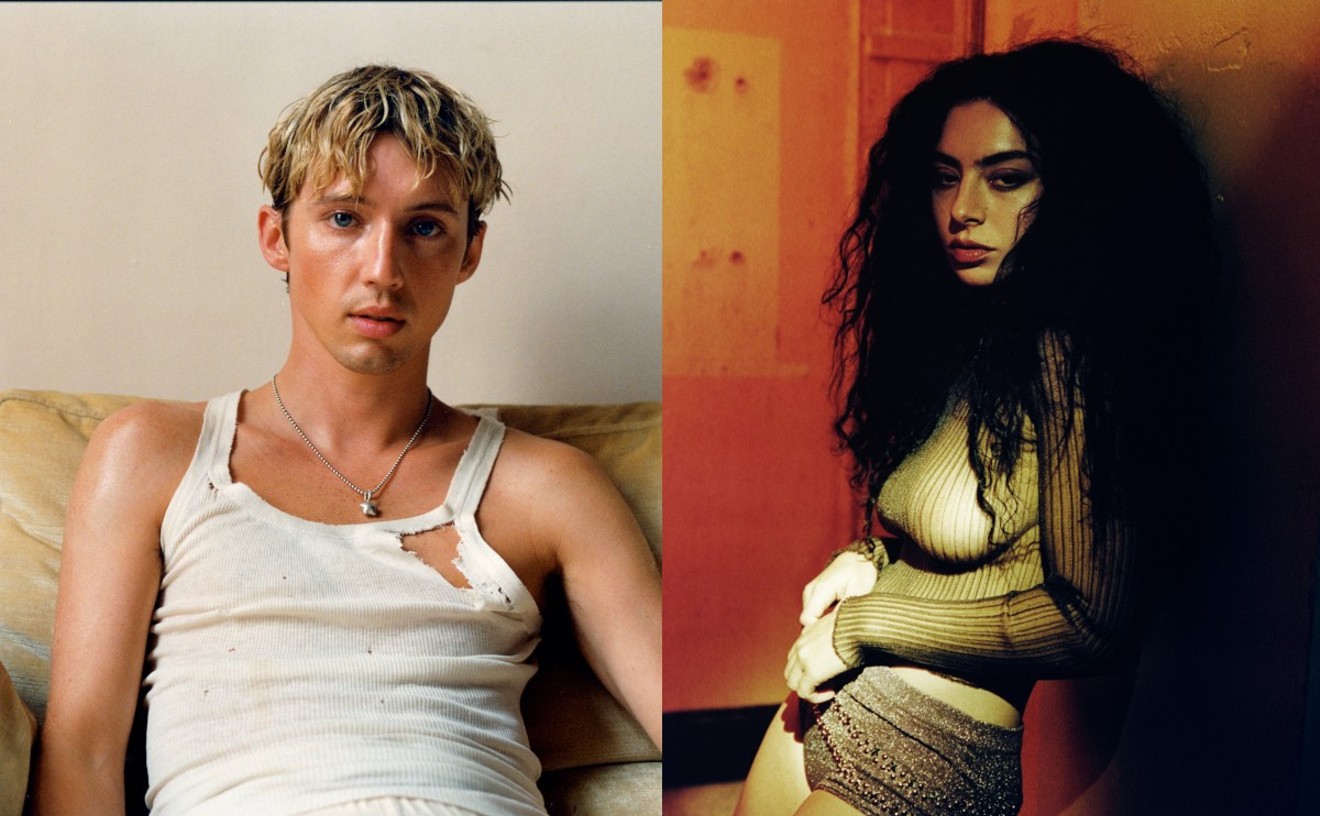Maybe not, but the 21-year-old band can still sell out small U.S. clubs on the strength of its late-'80s radio gems ("Joey" or "God is a Bullet").
One memorable concert was held last spring at Miami Beach's famed glitz-orama, BillboardLive. "Eeewwwww!" gags Napolitano, apparently remembering the venue without excess fondness. "Nothing against anybody who worked there -- because they were really nice -- but, boy, was that a freaky place. They had millions of dollars worth of equipment and there was nothing they could do to make it sound good. I wasn't very comfortable there, I have to say."
Concrete Blonde delivered despite the discomfort: Napolitano looked a bit bleary, but that big, bittersweet yelp and those loping, chunk-style bass lines hadn't dulled one iota. James Mankey's unkempt guitar slashed and stung, and if Gabriel Ramirez-Quezada didn't bring the flair of ex-Roxy Music drummer Paul Thompson (who ended his Concrete Blonde affiliation in 1994), he held up his end with simple efficiency.
Ramirez-Quezada helps uphold the band's reputation, too. The drummer maintains a home in Mexicali, while Napolitano keeps one down in Baja California, where, she sing/speaks, "Yes, yes, yes, the fine tequilas, they will heal ya!"
"We have more fun now than we ever have," Napolitano says heartily. "And we take pretty good care of ourselves. I could be doin' a little bit better, I suppose. I'm still me, know what I mean? I like my shot before I go out onstage. I've never been halfway, and I don't think I'll ever be able to be."
From the start, Concrete Blonde sounded synonymous with L.A.'s decadent post-punk trashiness and its hazardous, border-crossing possibilities. 1987's self-titled debut bristled with seediness and low-rent glamour and 1989's Free made 'em bona fide rock stars with "God is a Bullet." Bloodletting, the group's 1990 breakthrough, knifed its way into the top 40 with pulp-novel, vampire imagery that Napolitano's gusto managed to galvanize. But the rest of the '90s was slip-and-slide time for Concrete Blonde, with Walking in London and Mexican Moon faltering commercially, followed by a self-imposed retirement, a tepid rock en español effort (Concrete Blonde Y Los Illegals), and then last year's solidly, surprisingly hale comeback, Group Therapy.
Napolitano may be older and wiser, but her legendary ups and downs lend those hard-luck songs (like "Joey" 's tale of an alcoholic's abyss) an unmistakable credibility. In that same chasm, perhaps, lies a lost and abandoned solo album from the late 1990s, as well as some fruits of her labor with Chris Frantz and Tina Weymouth, the former Talking Heads who recruited her to helm their ill-fated comeback tour (as the Heads) in 1996. The accompanying album (No Talking Just Head) relied on guest vocalists for each of its 12 tracks, including Napolitano, Debbie Harry, and Michael Hutchence.
Napolitano says she recorded another album's worth of songs with Frantz and Weymouth that she calls "Amazing. I wanted to reverse the order of those releases, which I think would've worked really, really well. I think putting out the record with all the different singers didn't further their cause.
"I thought it was going to go somewhere, too, but it crumbled," Weymouth told New Times in 2001. "And we couldn't use any of the material we recorded with Johnette; it was sent to digital heaven -- or hell."
Napolitano, who remembers the brief Heads partnership and subsequent shows as "a great experience, musically," and still includes "Take Me to the River" in Concrete Blonde's live sets, wishes the unheard album would finally be released. But she isn't letting it bother her. "It just exists, and that's good enough for me," she says of these forgotten projects. "I know I accomplished it, and I'm really grateful to have inspiration to keep creating, 'cause a lot of people don't. A long time ago, I stopped taking seriously all those things I have absolutely no control over."
Today, Napolitano and Mankey live five miles apart in the California desert, on the edge of federally-protected land and vast open space. "Oh yeah, it's bad-ass !" she raves. "The peace is incredible. As long as I keep my dogs away from the coyotes, it's all good."
Yet an edginess awaits. Very soon, she has to drive to Palm Springs (the closest airport) and board a plane to begin the tour that brings Concrete Blonde to Fort Lauderdale next week. That makes her slightly nervous, as does the hate mail she's received lately -- pro-patriotic jingoism from Internet users who have checked out the band's web page (www.concreteblondeofficialsite.com), which is currently graced with the phrase, "War is Not Our Destiny."
"I don't get involved in politics," says Napolitano, who includes on the site an essay called "Why not stand down?" and an e-mail link to the White House, so you can "tell the fucker what you think." She continues, "I just dislike the president so much on so many levels. I express my feelings as a human being first, a woman second, and an American citizen third. The saddest thing is that this situation is turning us against each other. To get on my case because of something that I said on my website... I don't even care that people are selling my ass left, right, and center. But on my little corner of the universe, I'm gonna say exactly what I want to say. And if you don't want to come, then don't fuckin' come. If you don't want to buy my records, don't buy the damn records.
"It's not my country anymore," she concludes with a deflated sigh. "I know that sounds really un-American. But the last I heard, in spite of the fact that the climate doesn't seem to support it, I have every right to say that."










